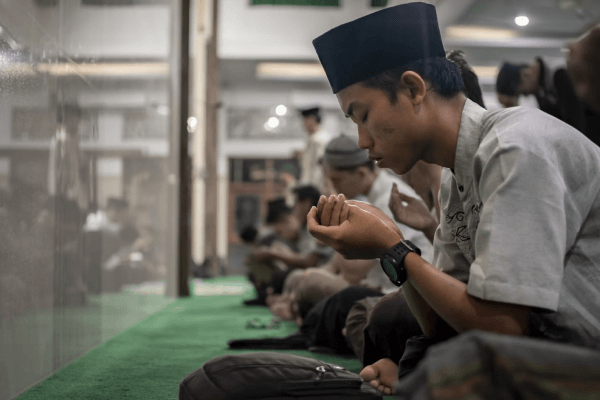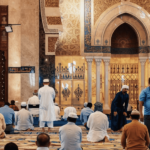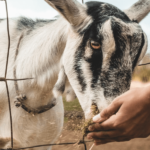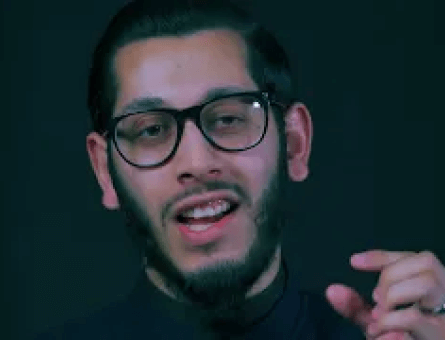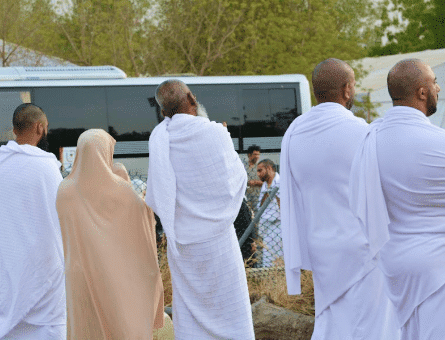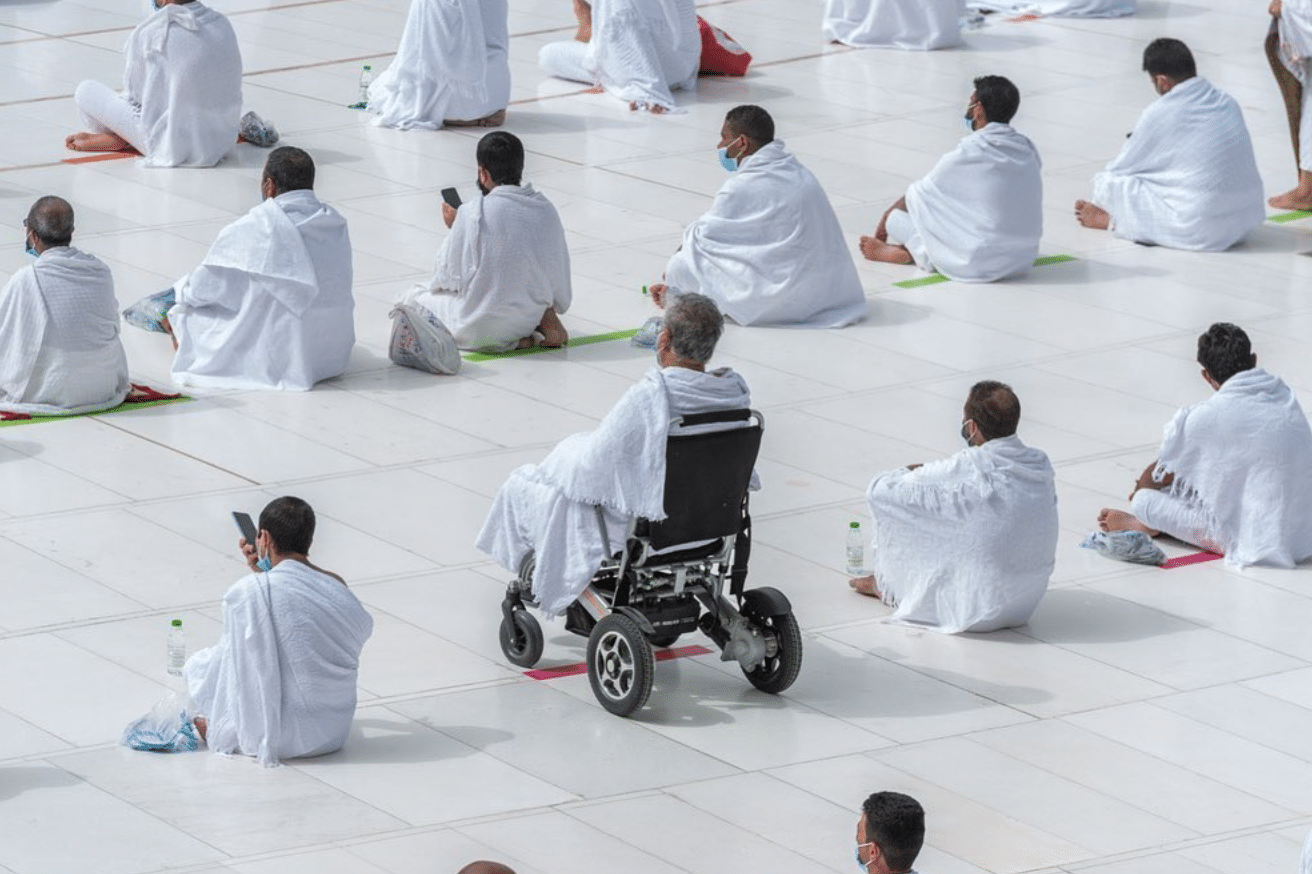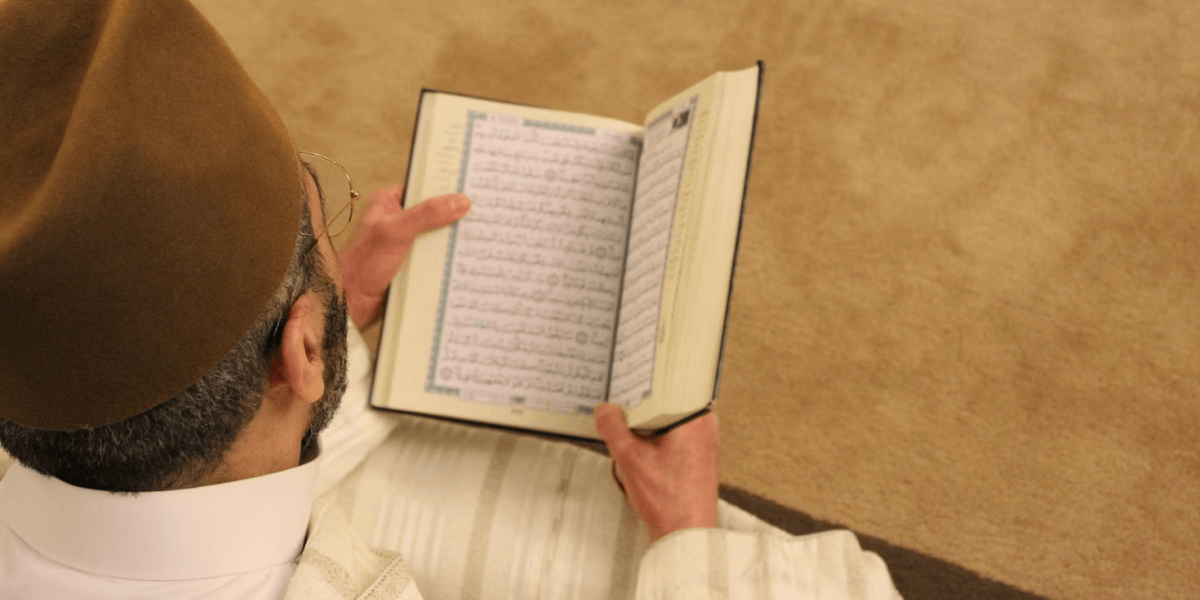What is Ramadan in Islam? – Everything you need to know
Ramadan is the holy month of fasting, prayer, and introspection for the followers of Islam. It is a time for Muslims to fast for the sake of Allah SWT while abstaining from all things considered impure for the mind, body, and soul.
Muslims partaking in this holy month abstain from eating, drinking, and indulging in wrong or sinful deeds from sunrise to sunset, ensuring that they focus only on praying and reconnecting with Allah SWT. Keep reading to learn about what is Ramadan, its history, and its importance in Islam.
Why Is Ramadan So Important in Islam?
In addition to bringing one closer to Allah SWT and strengthening their faith, fasting in the month of Ramadan is seen as a way to cleanse one’s soul, gain empathy for the less fortunate, and practice self-reflection and self-control.
Allah SWT in the Holy Quran states, “O you who believe! Observing As-Sawm (the fasting) is prescribed for you as it was prescribed for those before you, that you may become Al-Muttaqun (pious).” [Holy Quran, Surah al-Baqarah 2:183]
“When the month of Ramadan starts, the gates of Heaven are opened, and the gates of Hell are closed, and the devils are chained.” (Sahih al-Bukhari)
Al-Bazzar (Kashf 962) narrated that Abu Sa’id said: “The Messenger (PBUH) of Allah SWT said: ‘Allah has people whom He redeems every day and night – i.e., in Ramadan – and every Muslim every day and night has a prayer that is answered.'”
In another instance, the Messenger (PBUH) of Allah SWT said, “The five daily prayers, from one Jumu’ah to the next and from one Ramadan to the next, are expiation for (sins committed) in between, so long as you avoid major sins.”
Ibn Abbas (RA) reported that: “The Messenger (PBUH) of Allah SWT said to a woman among the Ansar, ‘What kept you from doing Hajj with us?’ She said, ‘We only had two camels that we used for bringing water.’ So her husband and son had gone for Hajj on one camel, and he left the other for them to use for bringing water. He said, ‘When Ramadan comes, go for ‘Umrah, for ‘Umrah in Ramadan is equivalent to Hajj.'” (Sahih al-Bukhari, Muslim)
How Do Muslims Perform a Fast?
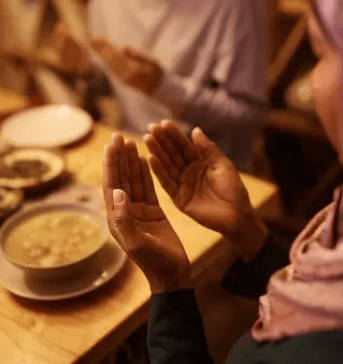 Fasting during Ramadan begins from sunrise, as Allah SWT says, “White thread becomes distinct from the black thread.” [Holy Quran, Surah Al-Baqarah 2:187], and ends at sunset.
Fasting during Ramadan begins from sunrise, as Allah SWT says, “White thread becomes distinct from the black thread.” [Holy Quran, Surah Al-Baqarah 2:187], and ends at sunset.
Following the Sunnah of Prophet Muhammad (PBUH), Muslims make it a point to wake up before dawn and eat sehri before the call for the Fajr prayer is given. While fasting throughout the day, Muslims are forbidden from eating, drinking, chewing, smoking, and taking part in sexual activities.
After spending a day doing their daily chores and worshipping Allah SWT, Muslims break their fast (have iftar) when the call for Maghrib prayer is made at sunset.
“Every one of you who is present (at his home) during that month should spend it in fasting, but if anyone is ill or on a journey, the prescribed period (should be made up) by days later. Allah intends every facility for you; He does not want to put to difficulties.” [Holy Quran, Surah Al-Baqara 2:185]
When Is Ramadan in 2024?
Ramadan is the ninth month of the Islamic (Hijri) Calendar, and because the dates of the calendar are based on the cycles of the moon, they vary every year.
In 2024, Ramadan is expected to begin on the 10th of March 2024, with the first day of fasting being on the 11th of March 2024 with the last day of fasting will be on the 9th of April 2024. However, this depends upon the sighting of the moon.
Eid ul-Fitr is expected to be celebrated Wednesday the 10th April. However, the dates of Eid are dependent upon whether the month of Ramadan is 29 or 30 days long.
Note that the dates are tentative and are calculated keeping in mind that the months in the Hijri calendar move ten days backwards on the Gregorian calendar each year.
How Long Is Ramadan?
The month of Ramadan can be 29 or 30 days long, depending upon the cycle of the moon. During the holy month, Muslims are required to abstain from eating and drinking from dawn till dusk. The first crescent moon determines the beginning of Ramadan.
However, the second crescent of the new moon determines the end of the holy month and the beginning of Shawwal.
Brief History of Ramadan
According to Islamic scriptures, in 610 AD, it was the month of Ramadan when Prophet Muhammad (PBUH) received a revelation from Allah SWT through Angel Jibreel (AS). The Arabic term Ramadan literally means ‘dryness’ or ‘scorching heat.’
Since its origin in the 7th century, the holy month of Ramadan has been a time for Muslims worldwide to fast from dawn till dusk, worship Allah SWT, follow the Sunnah of Prophet Muhammad (PBUH) and practice selfless deeds.
“O you who believe! Observing As-Sawm (the fasting) is prescribed for you as it was prescribed for those before you, that you may become Al-Muttaqun (pious).” [Holy Quran, Surah al-Baqarah 2:183]
Sawm – One of the Pillars of Islam
There are five basic pillars of Islam: Shahadah (believing in the oneness of Allah SWT), Salah (praying five times a day), Zakat (giving charity to those in need), Sawm (fasting in the holy month of Ramadan), and Hajj (pilgrimage to the Holy Kaaba).
Allah SWT said, “The month of Ramadan in which was revealed the Quran, a guidance for mankind and clear proofs for the guidance and the criterion (between right and wrong). So whoever of you sights (the crescent on the first night of) the month (of Ramadan, i.e. is present at his home), he must observe Sawm (fasts) that month, and whoever is ill or on a journey, the same number [of days which one did not observe Sawm (fasts) must be made up] from other days. Allah intends for you ease, and He does not want to make things difficult for you. (He wants that you) must complete the same number (of days), and that you must magnify Allah [i.e. to say Takbeer (Allahu Akbar: Allah is the Most Great)] for having guided you so that you may be grateful to Him.” [Holy Quran, Surah al-Baqarah 2:185]
Ibn Umar (RA) narrated that Prophet Muhammad (PBUH) said, “Islam is built on five (pillars): the testimony that there is no god except Allah and that Muhammad (peace and blessings be upon him) is the Messenger of Allah; establishing prayer; paying zakat; fasting in Ramadan; and Hajj to the House (the Kaaba).” (Sahih al-Bukhari, 8; Muslim, 16)
‘Sawm’ is one of the five pillars of Islam and is the Arabic term for fasting, which is the ninth month of the Islamic calendar. Allah SWT has instructed all physically able Muslims to observe Sawm (fast) from sunrise to sunset while abstaining from drink, food, engaging in sexual activities, and indulging in any and all sinful deeds. Individuals who fast must familiarise themselves with the rules of fasting to ensure that they follow the Sunnah of Prophet Muhammad (PBUH).
It is essential for the one fasting to stop eating Suhoor (pre-dawn meal) before the Fajr prayer. They must then spend the entire day worshipping Allah SWT, asking for His mercy and forgiveness. The person is then allowed to break their fast and to have an iftar (evening meal) upon sunset.
Zakat
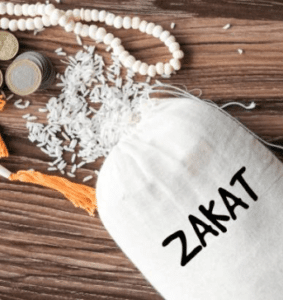 Zakat is the third pillar of Islam and is an obligatory act of charity for all financially stable Muslims. The literal meaning of ‘Zakat’ is ‘to cleanse.’ According to Islamic beliefs, giving Zakat is a way to purify, increase, and bless one’s wealth.
Zakat is the third pillar of Islam and is an obligatory act of charity for all financially stable Muslims. The literal meaning of ‘Zakat’ is ‘to cleanse.’ According to Islamic beliefs, giving Zakat is a way to purify, increase, and bless one’s wealth.
In Islam, giving charity (Sadaqah or Zakat) is considered a great deed anytime of the year. However, when combined with the auspicious reward of Ramadan, the blessings and rewards of giving Zakat are multiplied manifold.
Ibn Abbas (RA) narrated, “The Messenger (PBUH) of Allah SWT was the most generous of people, and he was at his most generous during Ramadan when Jibreel (AS) met him. Jibreel used to meet with him every night and teach him the Quran. The Messenger (PBUH) of Allah SWT was the most generous person, even more generous than the strong uncontrollable wind (in readiness and haste to do charitable deeds).” (Narrated by al-Bukhaari, 6; Muslim, 2308)
This means that if a person’s Zakat is due in Ramadan or after the month of fasting, by paying it in advance, the individual makes the most of the good deed. Note that Zakat is due on all assets and wealth with a value equivalent to or above the threshold of Nisab, which is 612.36 grams of silver and 87.48 grams of gold. Zakat is calculated at 2.5% of the total wealth taking into consideration the gold, silver, and cash in bank accounts and in-hand, investment property, pensions, money lent out, shares, stocks, agriculture produce, and business stock.
On the other hand, Zakat al-Fitr is a type of charity that is obligatory to give at the time of breaking one’s fast in Ramadan. With the intention to help the less fortunate, Zakat al-Fitr is usually given in the form of a staple food item. Ibn Abbas (RA) reported, “The Messenger (PBUH) of Allah SWT made Zakat al-Fitr obligatory as a means of purifying the fasting person from idle talk and foul language, and to feed the poor. Whoever pays it before the prayer, it is an accepted zakah, and whoever pays it after the prayer, it is just a kind of charity (sadaqah).” (Reported by Abu Dawood, 1371. Al-Nawawi said: Abu Dawood reported it from Ibn’ Abbaas with a Hasan isnaad)
What Is Eid al Fitr?
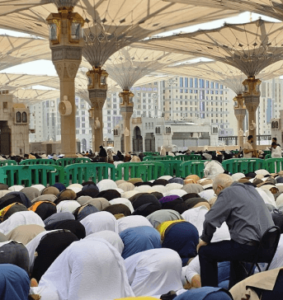 Eid al-Fitr is an Arabic term that means ‘Festival of breaking the fast.’ It is one of the most important holidays in the Islamic calendar and marks the end of the month of Ramadan.
Eid al-Fitr is an Arabic term that means ‘Festival of breaking the fast.’ It is one of the most important holidays in the Islamic calendar and marks the end of the month of Ramadan.
Eid al-Fitr is said to be a gift from Allah SWT to all Muslims for fasting all month long. Eid al-Fitr is celebrated for three days and is expected to be celebrated from Wednesday 10th April 2024, to Friday the 12th of April 2024.
Eid al-Fitr symbolizes virtues such as fortitude, godliness, piety, and patience. It is a day of celebration for all Muslims. The holy festival should be celebrated by expressing joy and rejoicing, expressing gratitude to Allah SWT, maintaining ties of kinship, and taking care of those in need.
The Messenger (PBUH) of Allah SWT used to celebrate Eid by taking a shower, wearing new clothes, thanking Allah SWT, meeting his beloved companions, and exchanging wishes and gifts.
A man asked Ali (RA) about bathing, and he said, “Bathe every day if you wish.” He said: “No, (I mean) bathing in the sense of ghusl (as an act of worship).” He said: “(Do ghusl) on Fridays, the day of ‘Arafah, the Day of Sacrifice (Eid al-Adha), and the day of al-Fitr (Eid al-Fitr).”
Abdullah ibn ‘Umar (RA) said: “‘Umar (RA) found a suit of brocade being offered for sale in the market, so he took it and brought it to the Messenger (PBUH) of Allah SWT and said: ‘O Messenger of Allah, buy this and adorn yourself with it for ‘Eid and for (meeting) the delegations.’ The Messenger (PBUH) of Allah SWT) said: ‘This is only a garment for the one who has no share in the Hereafter.'” (Narrated by al-Bukhaari (906) and Muslim (2068))
Jubayr ibn Nufayr reported that: “When the Companions of the Prophet (blessings and peace of Allah be upon him) met one another on the day of Eid, they would say to one another: ‘Taqabbal Allahu minna wa minkum (May Allah accept it from us and from you).'”
Prophet Muhammad (PBUH) said, “The days of at-Tashreeq are days of eating, drinking, and remembering Allah.” (Narrated by Muslim)
What Are the Rules for Ramadan?
Abu Hurairah (RA) reported that Prophet Muhammad (PBUH) said, “Allah the Exalted and Majestic said: Every act of the son of Adam is for him, except fasting. It is (exclusively) meant for Me, and I (alone) will reward it. Fasting is a shield. When any one of you is fasting on a day, he should neither indulge in obscene language nor raise the voice; or if anyone reviles him or tries to quarrel with him, he should say: I am a person fasting. By Him, in Whose Hand is the life of Muhammad, the breath of the observer of fast is sweeter to Allah on the Day of Judgment than the fragrance of musk. The one who fasts has two (occasions) of joy, one when he breaks the fast he is glad with the breaking of (the fast) and one when he meets his Lord he is glad with his fast.” (Sahih Muslim 1151)
While fasting, an individual must abstain from having impure thoughts, eating, drinking, engaging in sexual activities, smoking, chewing gum, injecting vitamins or minerals, cupping, and immoral behaviour from dawn till dusk every day.
In the month of Ramadan, Muslims are only allowed to eat two times a day, that is, at Suhoor (before sunrise and the Fajr prayer) and at Iftar (when the sun sets and after the Maghrib prayer).
Every Muslim who has reached puberty and has good health is obligated to fast in Ramadan. One is only exempted from fasting if they are sick, pregnant, menstruating, or travelling long distances.
In case one misses a fast or breaks it intentionally, then they must compensate for the missed fast later in the year. And in the case of breaking the fast, one must either fast sixty consecutive days or give kaffarah, which refers to donating money equivalent to the value of feeding 60 people.
What Breaks a Fast?
There are several things that break a fast. These include masturbation, intercourse, drinking, eating, chewing, letting blood out by the means of cupping, transfusion of blood, injecting vitamins, vomiting intentionally, menstruation, and post-natal bleeding.
How to Wish Someone Happy Ramadan (Ramadan Mubarak)
You can exchange Ramadan greetings by saying “Ramadan Mubarak,” which translates to “Happy Ramadan,” or “Ramadan Kareem,” meaning “Have a generous Ramadan.” Here are some Ramadan wishes that you can send to your loved ones:
- May this Ramadan be bright as ever.
- Wishing you all a blessed and happy Ramadan.
- Let the spirit of Ramadan remain in your heart and light up your soul from within.
- May the blessings of Ramadan be upon you and your family, and may Allah SWT accept your prayers and fasts.
- I wish you four weeks of blessings, 30 days of clemency and 720 hours of enlightenment. Happy Ramadan!
- May Allah always guide you all throughout your journey in life. I wish this Ramadan will infuse you with courage that will help you be triumphant over the adversities of life.
- May the crescent-shaped moon brighten your path toward enlightenment, and may Allah bless you with peace and grace.
Summary – What Is Ramadan?
Ramadan is one of the holiest months in Islam. It is the time when the gates of hell are closed, and the gates of heaven are opened, and the devil is chained.
Ramadan is the month in which Allah SWT revealed the Holy Quran to Prophet Muhammad (PBUH). Muslims worldwide spend the month of Ramadan worshipping Allah SWT and fasting for the sake of the Almighty.
Through His Names
New course with
Ustadh Shabbir Hassan




